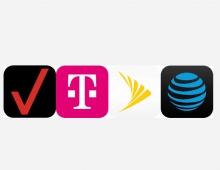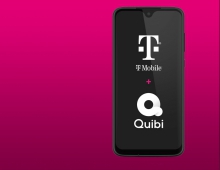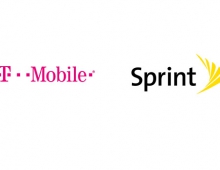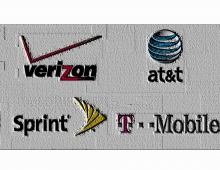
EFF Slams T-Mobile Over Video Throttling
The Electronic Fronitier Foundation (EFF) has tested T-Mobile's Binge On service and discovered that it does not "optimize" the video streams as T-Mobile admits- it is actually throttling them. Back in November, T-Mobile announced a new service for its mobile customers called Binge On, in which video streams from certain websites don’t count against customers’ data caps.
The service is theoretically open to all video providers without charge, so long as T-Mobile can recognize and then "optimize" the provider’s video streams to a bitrate equivalent to 480p.
However, there is another "feature" of Binge On that has many customers complaining. T-Mobile is applying its "optimization" to all video, not just the video of providers who have asked T-Mobile to be zero-rated. T-Mobile claims it does this to provide a better experience for its customers, saying that
"T-Mobile utilizes streaming video optimization technology throughout its network to help customers stretch their high-speed data while streaming video"
and that Binge On helps "deliver a DVD quality (typically 480p or better) video experience with minimal buffering while streaming."
EFF reied to test this optimization technology and discovered that when Binge On was enabled, T-Mobile throttled all HTML5 video streams to around 1.5Mps, even when theoiir test phone was capable of downloading at higher speeds, and regardless of whether or not the video provider enrolled in Binge On.
"This is the case whether the video is being streamed or being downloaded—which means that T-Mobile is artificially reducing the download speeds of customers with Binge On enabled, even if they’re downloading the video to watch later. It also means that videos are being throttled even if they’re being watched or downloaded to another device via a tethered connection," EFF said.
The second major finding in EFF's s tests was that T-Mobile was throttling video downloads even when the filename and HTTP headers (specifically the Content-Type) indicate the file was not a video file. T-Mobile responded that that they have solutions to detect video-specific protocols/patterns that do not involve the examination of actual content.
EFF's last finding was that T-Mobile’s video "optimization" doesn’t actually alter or enhance the video stream for delivery to a mobile device over a mobile network in any way.
"This means T-Mobile’s "optimization" consists entirely of throttling the video stream’s throughput down to 1.5Mbps. If the video is more than 480p and the server sending the video doesn’t have a way to reduce or adapt the bitrate of the video as it’s being streamed, the result is stuttering and uneven streaming - exactly the opposite of the experience T-Mobile claims their "optimization"will have, EFF added.
EFF contacted T-Mobile to get clarification. They confirmed that they don’t do any actual optimization of video streams other than reducing the bandwidth allocated to them (and relying on the provider to notice, and adapt the bitrate accordingly).
Setting aside for the moment the question of when zero-rating constitutes a violation of net neutrality in and of itself, EFF says that throttling all traffic based on application type definitely violates the principles of net neutrality. It also obviously violates the FCC’s Open Internet Order, which says that ISPs.
EFF asks T-Mobile to stop throttling the video of providers who haven’t signed up to be zero-rated in Binge On, regardless of the status of the T-Mobile customer.
"But the best option would be to make Binge On opt-in (instead of opt-out), with clear disclosure that opting in will throttle all video traffic," EFF says.
In the meantime, if T-Mobile doesn’t change its behavior, EFF says "it’s up to the FCC to follow up."





















